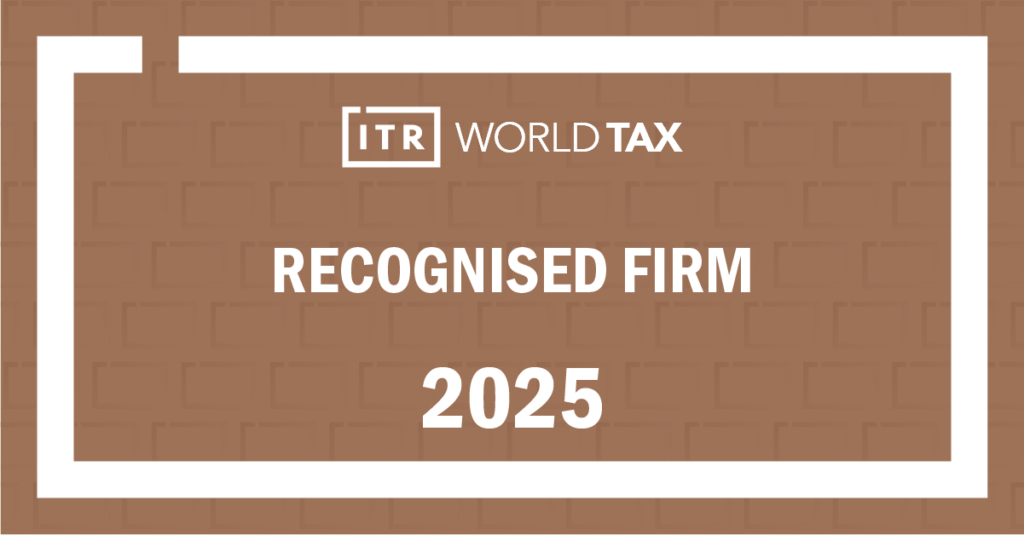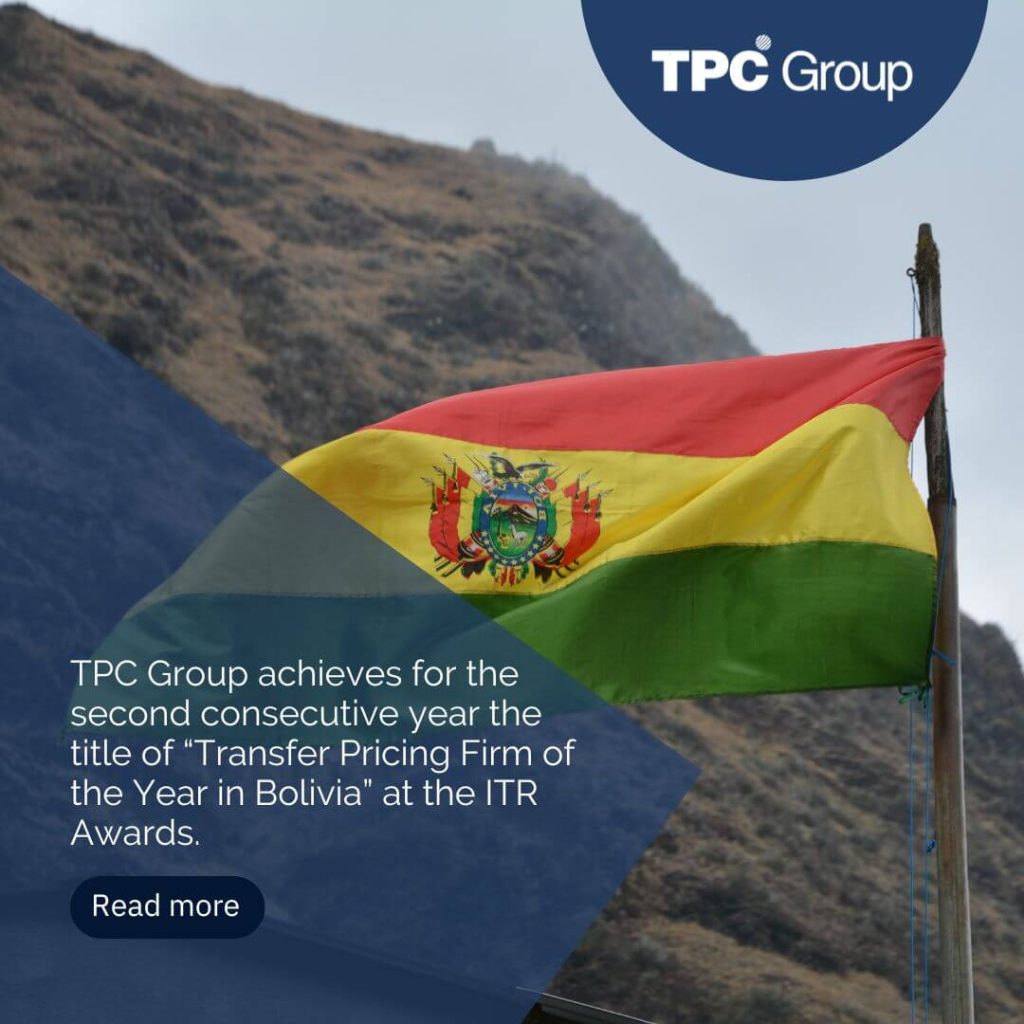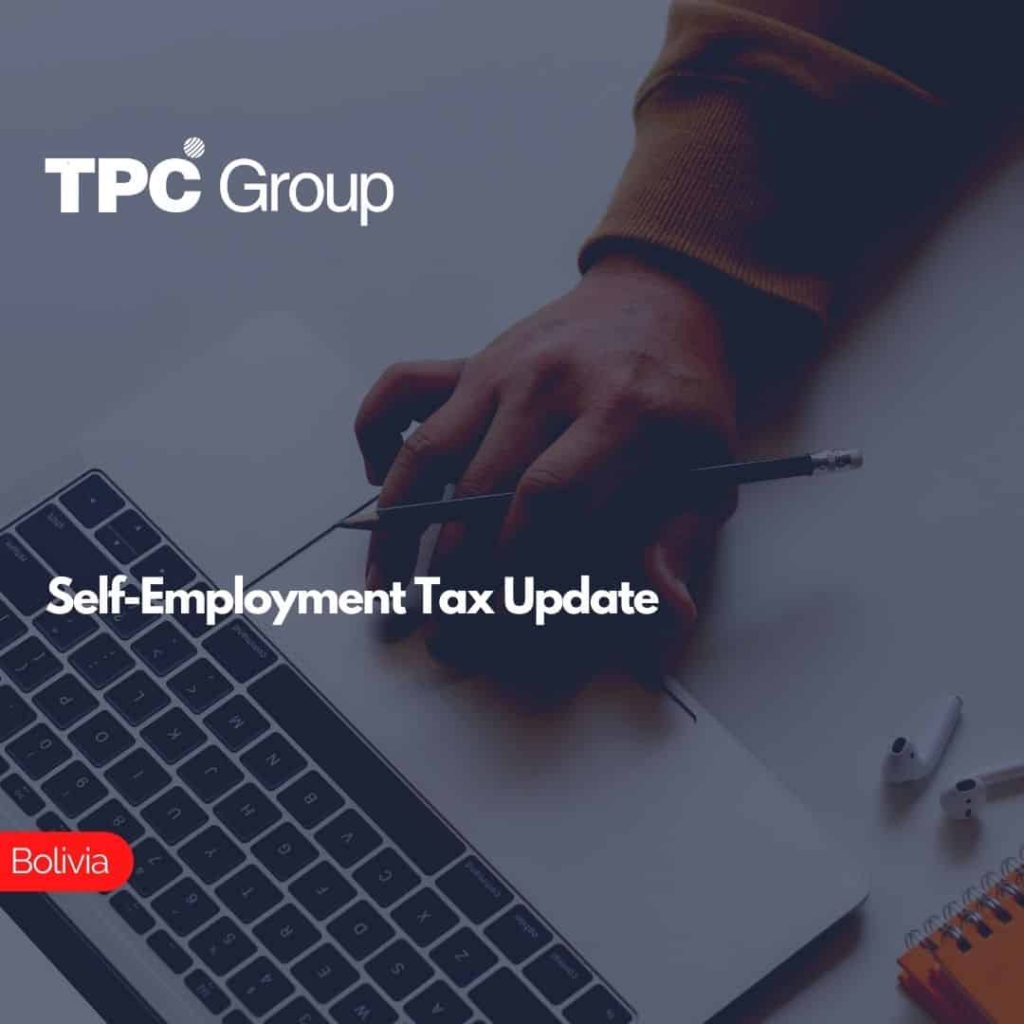Concept and Regulation in Bolivia
Transfer pricing legislation in Bolivia is not longstanding, introduced in 2014 through Law 549 or “Investment Promotion Law,” which amends Articles 45, 45 bis, and 45 ter of Law No. 843.
Then, Supreme Decree No. 2227 was published, regulating the provisions of the Law in question, such as the cases of connection, methodology, and documentation to be filed, among other guidelines.
Later, in 2015, the Regulatory Resolution of the Board of Directors No.10-0008-15 was published, which establishes the subjects obliged to file the Transfer Pricing Study and the Informative Affidavit, as well as the deadlines for submission and form.
Although the Bolivian Transfer Pricing regulations had not included the Organization for Economic Cooperation and Development (OECD) then, the SIN (Servicio de Impuestos Nacionales – National Tax Service) referred to this organization in 2017 through RND 1017000001 when it included the list of tax havens.
The Arm’s Length Principle: Concept
This Transfer Pricing ruling principle is based on the accordance between the related-party pricing and the market value, as agreed upon by independent parties.
This principle is also regulated in the Bolivian Transfer Pricing legislation, in Article 45 of Law No. 843, which states that the prices agreed in commercial and/or financial related-party transactions must be those agreed upon between independent parties.
Identification Criteria for Related Companies
According to the third paragraph of Article 45 of the Law, two or more companies will be considered related when a person, whether individual or legal, participates in the management, control, administration, or capital of another company.
Such a relation will also be formed when a third party, directly or indirectly, participates following the provisions of the preceding paragraph in two or more companies.
Hence, Article 2 of the D.S. No. 2227 indicates certain cases of relation, such as the following:
For Article 45 of Law No. 843, parties are considered related when:
| RELATION NUMBER | BINDING TYPE |
| Num. 1. | An individual or legal person from Bolivia directly or through third parties participates in the management, control, administration, or owns capital in one or more companies abroad or branches or subsidiaries of foreign companies operating locally. |
| Num. 2. | A foreign individual or legal person directly or through third parties participates in the management, control, administration, or owns capital in one or more local companies, branches, or subsidiaries of foreign companies operating locally. |
| Num. 3. | An individual or legal person with local transactions maintains direct or indirect commercial and/or financial relationships with individual or legal persons domiciled or operating in tax havens. |
| Num. 4 | A branch, subsidiary, or affiliate in the national territory maintains transactions with its foreign parent company or vice versa. |
| Num. 5 | Commercial and/or financial transactions are carried out between a branch, subsidiary, or affiliate located locally and another from the same parent company abroad. |
| Num. 6 | Commercial and/or financial transactions are carried out between a local company and another abroad whose owners, shareholders, partners, directors, or hierarchical personnel are related up to the fourth degree of consanguinity and second degree of affinity. |
II. In addition to those described, upon the proposal of the Tax Administration and after the evaluation of the Technical Transfer Pricing Committee, other relationship forms will be incorporated by Supreme Decree when the transactions have not been carried out under conditions similar to those of independent parties in comparable market operations.
Likewise, regarding tax havens, the Annex to Resolution No. 1019000002 of the Board of Directors in 2019, which lists them, must be considered.
Transfer Pricing Methods in Bolivia
According to Article 45 ter of Law No. 843 and its Regulation (Article 7 of D.S No. 2227), the Transfer Pricing legislation in Bolivia provides for six methods to analyze whether related-party prices comply with the Arm’s Length Principle:
- Comparable Uncontrolled Price Method.
- Resale Price method.
- Cost Plus Method.
- Profit Split Method.
- Transactional Net Margin Method.
- Notorious Price Method in Transparent Market Transactions.
Likewise, the standard states that the most appropriate method for the type of transaction will be applied. Conversely, if any of the aforementioned methods fits the nature and economic situation of the transaction to determine its value, another method will be applied.
Comparability Criteria in Bolivia
In order to compare whether two or more transactions are comparable, the following will be considered, according to Article 5 of the Decree in question:
- The characteristics of the goods or services.
- The functions assumed by the parties to identify risks and assets.
- The contractual terms of the transaction.
- The characteristics of the market or other influencing factors.
- The commercial strategies.
Documentation Formally Requested by the Authority
The obligations of the taxpayer in related-party transactions, according to Article 3 of D.S No. 2227, are as follows:
- Every company, branch, subsidiary, or affiliate established locally must independently keep its own accounting and/or special records.
- Related companies established locally, according to Article 2 of D.S. No. 2227, must carry out their commercial and/or financial transactions at market prices. These operations must be reflected and recorded in the financial statements, affidavits, and/or special records of taxpayers of the Corporate Income Tax.
- Taxpayers must file to the Tax Administration, along with the financial statements and the tax return, a Transfer Pricing Study on the related transactions prepared according to the technical aspects established in this Regulation.
Transfer Pricing Study (TPS) and Informative Affidavit of Related-Party Transactions (E-Form 601)
Chapter II, Articles 3 and 4 of RND No. 10-0008-15 specify the characteristics and requirements to be contained in the Transfer Pricing Study; on the other hand, Article 6 of that resolution indicates the procedure to file the E-Form 601:
Transfer Pricing Study – TPS
According to Article 3 of Resolution Directorate No. 10-0008-15:
- The Transfer Pricing Study – TPS must be prepared in both physical and digital format, written in Spanish, expressed in Bolivianos, and include the signature of the Legal Representative or NIT holder, as appropriate.
- The price or value of the related-party transaction, as well as that of comparable transactions, must be expressed in Bolivianos (Bs). Therefore, when the transaction has been carried out in a currency other than Bolivianos, taxpayers must translate these amounts to Bolivianos through the official exchange rate in force at the date of the transaction between the national currency and the respective foreign currency, according to the publication made by the Central Bank of Bolivia when applicable.
The content of the Transfer Pricing Study – TPS Is Detailed in Article 4 of RND No. 10-0008-15
E-Form 601 – Informative Affidavit of Related-Party Transactions
Filling out the E-Form 601, Informative Affidavit of Related-Party Transactions must be done through the Da Vinci application, whose updates and filling instructions will be available on the National Tax Service website www.impuestos.gob.bo as indicated in Article 6 of RND No. 10-0008-15.
Subjects Obligated to Declare
According to Chapter III – Article 7. (Subjects Obligated to Declare) of RND No. 10-0008-15: Those required to declare their related-party transactions as appropriate:
| Taxpayers whose annual accrued related-party transactions are: | E-Form 601 – Informative Affidavit of Related-Party Transactions | Transfer Pricing Study – TPS |
| ≥ Bs15.000.000 | X | X |
| [Bs7.500.000; Bs15.000.000 > | X | Does not apply |
| < Bs7.500.000 | Obligation to keep the necessary documentation to support their related-party transactions was carried out at market prices, or the necessary adjustments were made. | |
- Those taxpayers whose annual accrued related-party transactions are greater than or equal to Bs7,500,000 and less than Bs15,000,000.
- Additionally, companies with related-party transactions exceeding Bs15,000,000 will file a report.
Regarding the filing of the physical and digital copy of the TPS, as well as related to the filing of the E-Form 601, Chapter III – Article 8 of RND No. 10-0008-15 indicates:
- The physical copy of the TPS must be filed at the District Management or GRACO of the corresponding jurisdiction, along with the financial statements corresponding to the end of the fiscal year. The filing of the digital information of the TPS will be carried out through the SIN website.
- The filing of the E-Form 601 and Informative Affidavit of Related-Party Transactions must be carried out through the Da Vinci module of the Virtual Office or from the same Da Vinci application in case of having an Internet connection.
Adjustments, Verification, and Sanctions
Article 10 of Chapter IV of RND No. 10-0008-15 describes the procedure to calculate the adjustment if the price or value agreed upon for the related-party transaction is out of the range of market values, thus being sanctioned. Meanwhile, Article 11 of the same RND indicates the Bolivian Tax Administration can verify and adjust if necessary.
Filing Deadline
The deadline to file the Transfer Pricing Study and/or the E-Form 601.
According to Chapter III, Article 9 of RND No. 10-0008-15, the Transfer Pricing Study – TPS must be filed in physical and digital format, and/or the E-Form 601 and Informative Affidavit of Related-Party Transactions must be prepared within the deadline established to file the Affidavit and pay the Corporate Income Tax, as provided in Article 39 of Supreme Decree No. 24051 from the first fiscal year covered by the effectiveness of Law No. 549 of July 21, 2014.
“ARTICLE 39° D.S. No. 24051 – The deadlines to file the affidavits and pay the tax, where applicable, will expire one hundred and twenty (120) days after the close of the fiscal year, either filed with or without the opinion of external auditors.” The following closing dates have been set since the fiscal year 1995, according to the type of activity:
| Type of activity | Fiscal Management Closing | Deadline for Submission of the Transfer Pricing Study and/or Form 601 (up to date) |
| Industrial and oil companies. | March 31st | July 29th |
| Rubber, chestnut, agricultural, livestock, and agro-industrial companies | June 30th | October 28th |
| Mining companies | September 30th | January 28th |
| Banking, insurance, commercial, service companies, and others not contemplated in the previous dates, as well as subjects not required to keep accounting records and individuals who practice professions or trades independently | December 31st | April 30th |
Transfer Pricing Non-compliance Sanctions in Bolivia
Sanctions for non-compliance with Transfer Pricing obligations are regulated by Article 162 of Law 2492 or the “Bolivian Tax Code,” which depends on the type of infringement committed.
Likewise, Annex I of RND No. 10-0033-16 has established sanctions for infringements, according to the aforementioned Article of the Tax Code.
Those related to Transfer Pricing obligations are regulated from paragraphs 3.23 to 3.31 of the aforementioned Annex, which range from 2500 UFV to 5000 UFV.
The sanctions for not filing, late filing, with errors, or incomplete information will be fined from 50% to 100% of the maximum sanction established in Art. 162 of Law 2492.




